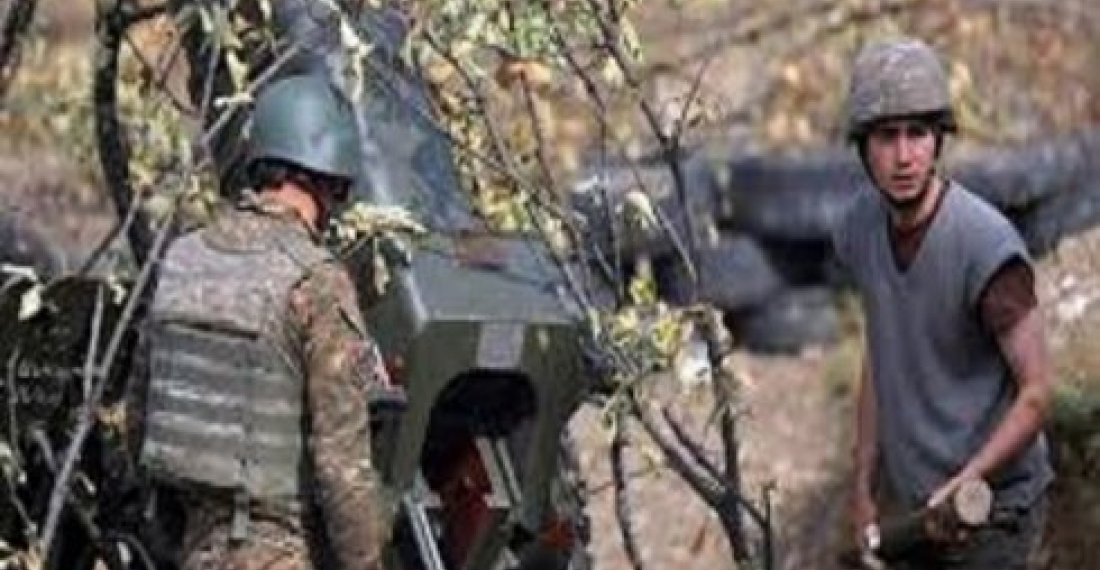Iran continues to be anxious at the situation on its north-western border as clashes continue between Armenian and Azerbaijani forces in the Nagorno-Karabakh conflict zone.
On Sunday, the Iranian Army's Ground Force held a one-day drill in the country's northwestern border region..
A military source said that the military exercise, codenamed 'Lovers of Velayat-99', was held to display the country's defensive might and the readiness of the armed forces to counter any threat against the Islamic Republic's security and integrity. In this specialized tactical exercise, the first phase of which was held overnight, the infantry, engineering, UAV and artillery units supported the 164th Mobile Assault Brigade in achieving predetermined goals during the drill. Maintaining and promoting mobility, responding quickly to threats, and increasing combat readiness and defense capabilities were among the objectives of the 'Lovers of Velayat-99'.
On Saturday (24 October), the commander of Iranian Revolutionary Guards Corps Ground Force paid his third visit to the border area in three weeks to monitor the border security situation. Brigadier General Mohammad Pakpour told Iranian media that any insecurity and threat on Iranian borders that harm the security and psychological tranquility of the citizens of the country will be met with Iran's countermeasures. In a reference to the ongoing conflict the brigadier general stated that the Islamic Republic of Iran opposes any occupation and aggression and condemns it strongly. "Since the first days of recent conflict broke out between Republic of Azerbaijan and Armenia, IRGC Ground Force has been active in the border region, monitoring border developments", he said adding that "necessary measures and reinforcements have been taken in accordance with the situation."
Earlier Iranian media reported that troops and equipment from the Special Division 25 Karbala were deployed to the East Azerbaijan province from the nearby Mazandaran province.
Whilst Iran has officially taken a neutral position in the conflict, public opinion, especially in the norther part of the country populated by ethnic Azerbaijanis is strongly pro- Azerbaijan.
Writing in an op-ed on Mehr News Agency, an Islamic scholar Hojjatoleslam Reza Kafili, stated:
"Of course, the UN Security Council also issued four resolutions, calling for the separatists and Armenian government to withdraw from the occupied territories, but Armenia did not heed the resolutions. The Organization for Security and Cooperation in Europe (OSCE) then formed the Minsk Group and consequently, this Group stalled and failed to do anything. Thus, with the testimony of history and even according to the UN Security Council [2], Nagorno-Karabakh is the territory of Azerbaijan and in the very beautiful interpretation of the leader of the Muslims of the world, Grand Ayatollah Khamenei, Nagorno- Karabakh is the land of Islam.
In recent months, with the escalation of conflict between Azerbaijan and Armenia over the Nagorno-Karabakh region, although Islamic Iran has officially announced a policy of maintaining and developing equal relations between the parties to the conflict, some international solutions to resolve the conflict in neighboring countries is not far-fetched.
Islamic Republic of Iran has cultural, religious and linguistic commonalities in this region and this region i.e. Nagorno-Karabakh is considered as a part of Iranian Islamic civilization. Therefore, by fulfilling some international activities, it can play an effective role in this issue. Accordingly, Friday prayers leaders in northwestern part of the country issued a statement and announced their wise and precise position on the Nagorno-Karabakh conflict."
source: commonspace.eu with MEHR news agency (Tehran) and other agencies
photo: Iranian Revolutionar Guards Corps Servicemen on manoevres (archive picture)







